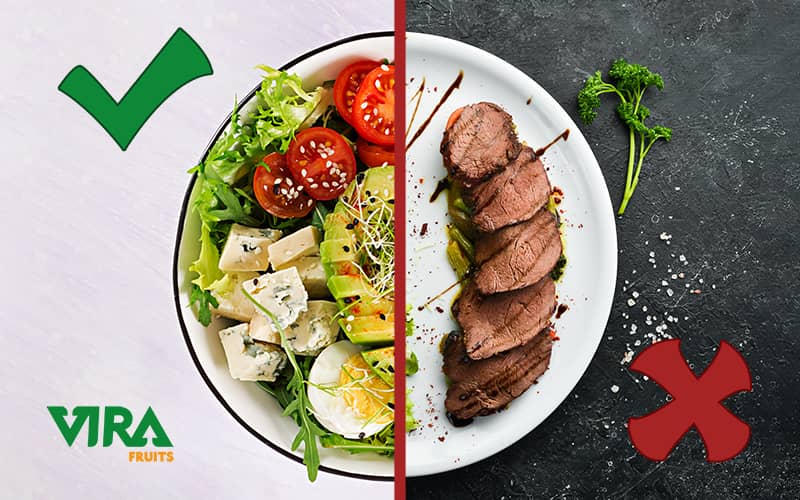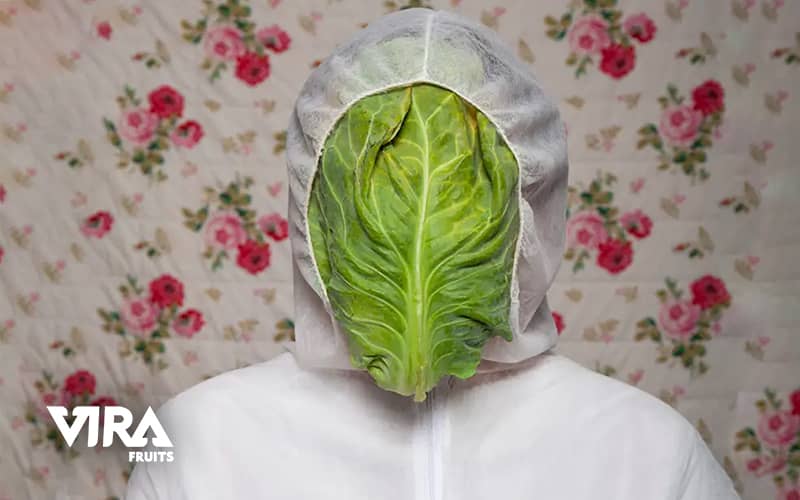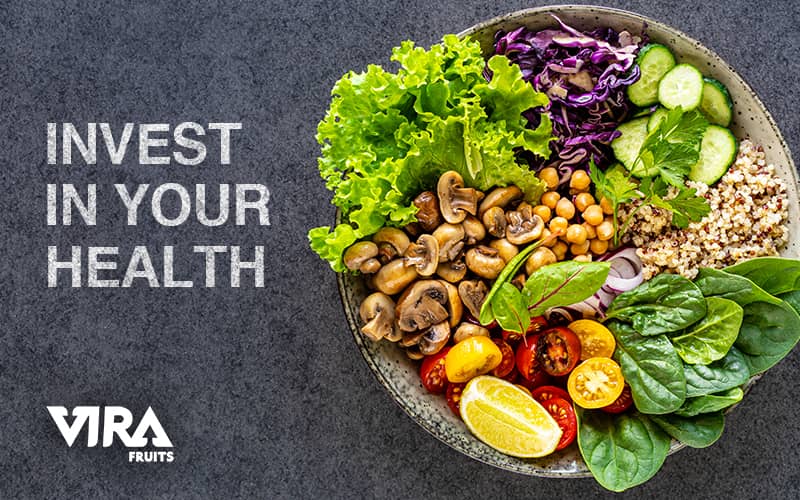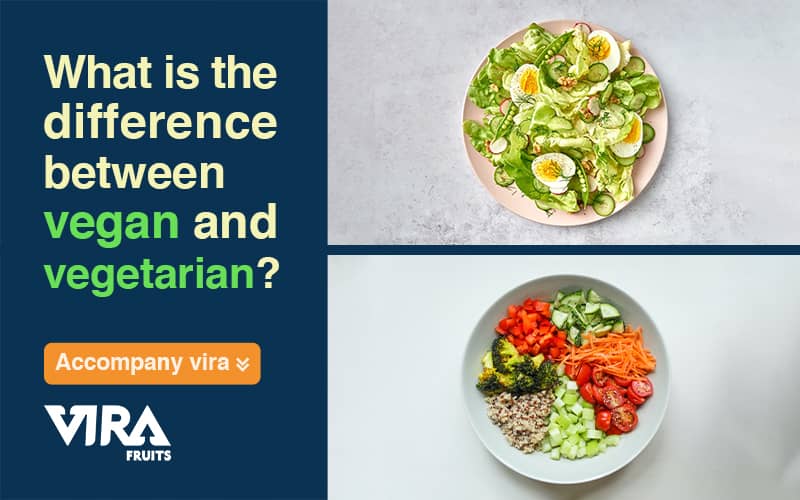Although vegetarian and vegan diets emphasize consuming primarily plant-based meals, vegetarians are permitted to consume dairy, eggs, and honey. However, vegans abstain from all animal-based meals and goods, such as dairy, honey, eggs, red meat, poultry, and poultry. If implemented appropriately, both diets can be perfectly safe. Therefore, in this post, we will discuss what is vegan food and explain its difference from the vegetarian diet.

What is the vegetarian diet?
People who are vegetarians abstain from consuming any animal products that come from animal slaughter. Among the foods vegetarians avoid are meats such as beef, pork, and various kinds of meats.
Birds such as chicken, turkey, and duck
Shellfish and fish
Insects
Gelatin, curd, and other animal proteins
Fat from slaughtered animals
There are vegetarians who consume things that do not necessitate the death of animals, of course. These goods consist of:
Egg, dairy items like milk, cheese, yogurt, and honey
Vegetarians substitute other foods with the same nutritional content as meat, such as fruits, vegetables, nuts, seeds, lentils, and other legumes. Additionally, some individuals follow a simpler diet than vegans.

What is vegan food, and what are its types?
- A vegetarian diet, which allows for the consumption of dairy products and eggs but excludes all forms of red and white meat, is practiced by dieters.
- A vegetarian diet, which allows for the consumption of dairy products and eggs but excludes all forms of red and white meat, is practiced by dieters.
- A vegetarian diet that includes eggs excludes dairy products and red and white meat but includes eggs.
- Dieters who follow the vegetarian diet eat seafood like fish but abstain from eating other animals’ flesh. Some people opt to follow this vegetarian diet even if it does not adhere to the conventional concept of vegetarianism.
A vegan diet is a component of a philosophy and lifestyle that aims to end all types of animal exploitation and cruelty, whether for research, entertainment, or other uses. Veganism is a diet and way of life that some people choose for moral, environmental, or health reasons.
Vegetarian diets forgo all products containing dairy, eggs, fish, or any form of meat. Many vegetarians avoid goods that include animal byproducts like honey, wax, and gelatin, especially those who practice vegetarianism for ethical reasons.
Vegans and vegetarians frequently consume plant-based foods, such as several fruits, vegetables, nuts, grains, seeds, beans, and legumes.
Explanations about the vegan diet:
A more severe variation of vegetarianism is veganism. Vegans abstain from consuming any animal products or goods derived from animal suffering. Being vegan can be viewed as a way of life. This way of living aims to do away with all animal abuse, whether it is for food, clothing, or any other reason, to the greatest extent feasible. Vegans strictly avoid any foods and drinks that contain animal products.

What are the benefits of vegetarian and vegan diets for the body?
Diets that are vegetarian or vegan may be beneficial to your health, according to scientific research. In 2017, a study with 49 overweight or obese adults was carried out. These individuals additionally had one of the following illnesses in addition to the aforementioned: type 2 diabetes, ischemic heart disease, high blood pressure, or high cholesterol.
The individuals were split into three groups at random by the researchers. While the second group followed a low-fat diet, the first group followed a typical diet and care regimen (exercise and calorie counting). The third group made no particular efforts. Every week, the first two groups participated in two 2-hour sessions where doctors offered the necessary instruction in medicine and food.
After six and twelve months, the subjects’ conditions were evaluated. The findings showed that participants in group two had significantly lower body mass index (BMI) and cholesterol levels than in group one.
In addition, a basic review and meta-analysis carried out in 2017 discovered proof that a plant-based diet can aid in lowering the quantity of harmful cholesterol in the blood. In accordance with a 2016 study, vegetarians in South Asia and the United States are less likely to be fat than non-vegetarians.
The general health advantages of plant-based diets include increased quality of life, sustained weight management, decreased risk of most chronic diseases, decreased severity of existing ailments, and reduced risk of problems getting worse.
- It reduces the risk of heart diseases: A vegan diet reduces the prevalence of heart disease risk factors such as obesity, diabetes, high blood pressure, elevated blood sugar, and elevated blood lipids. A vegan diet results in a decrease in saturated fat consumption. Cholesterol levels are low on a plant-based diet. Flavonoids and carotenoids included in plant diets assist in controlling the body’s inflammatory response.
- It reduces the risk of type 2 diabetes: A balanced diet high in fruits and vegetables and low in processed foods generally prevents type 2 diabetes. Insulin resistance is decreased by fiber, antioxidants, and micronutrients. Additionally, studies show that substituting plant proteins for meat may lower the incidence of renal failure in diabetic people.
- It provides a lot of nutrients for the body: The whole spectrum of nutrients your body needs to be healthy is found in whole plant foods like whole grains, legumes, fruits, vegetables, nuts, and seeds. Compared to other animal sources, they might offer larger levels of nutrients. According to numerous studies, eating a vegan diet increases the intake of a variety of vital nutrients, such as antioxidants, fiber, folate, magnesium, potassium, and vitamins A, C, and E.
- Reduces arthritis pain: Inflammation and hormonal changes brought on by eating animal products are known to contribute to a number of disorders, including arthritis. Joint inflammation caused by the painful condition of arthritis can make it difficult for you to walk or move around. Plant probiotics (good bacteria) found in food can reduce this inflammation. In order to effectively utilize the nutrients you eat, these bacteria also help digestion.

zoritoler imol
Excellent web site. A lot of useful information here. I’m sending it to several buddies ans also sharing in delicious. And obviously, thank you to your sweat!
Matin Rostami
Thank you for your kind words! It’s great to hear that you found the information on my website useful and are sharing it with others. I appreciate your support and am glad that my hard work is paying off.